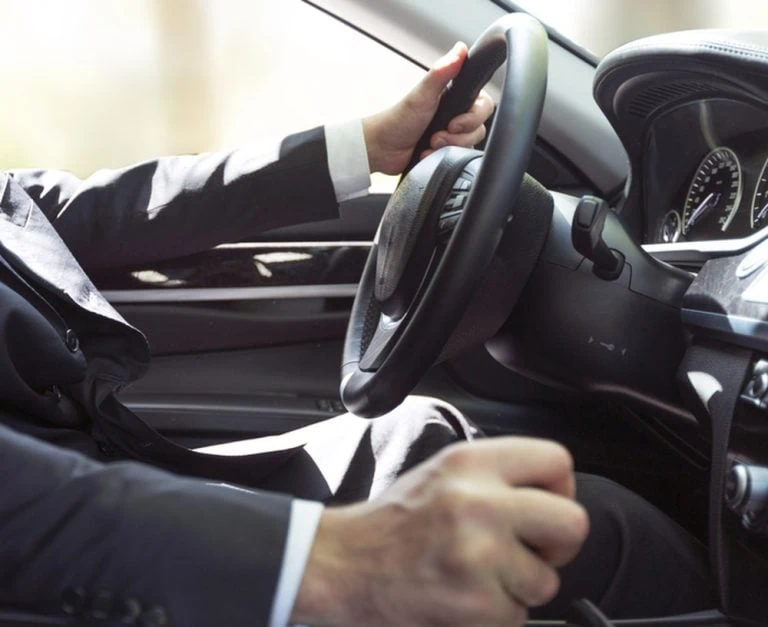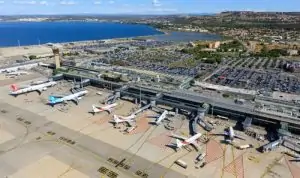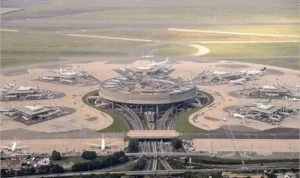It can be difficult to find your way around and to know which are the essential documents for your trip. If you forget a document, your trip could be compromised, so it's important to be able to anticipate and plan the right documents to take with you on your trip. Each country has different regulations and requirements. AdopteUnParking.com will help you to see things more clearly and travel with peace of mind.
First stage: identity documents
Your destination country may not require a passport. A passport is not always essential, and this is the case for European Union countries. In these countries, the identity card is all you need to travel. This document is valid for 15 years (make sure you check the validity of your identity card before you leave!) and is free to obtain if you are French. However, if you don't have one yet, or if it is about to expire, it can take a long time to get one. You may have to wait a few weeks or even several months, depending on the département.
If you are travelling to a country outside the European Union, you will need a passport. In France, you will need to go to your local town hall to apply for a passport. Some communes have a counter where you can apply from a registration station. The passport is valid for 10 years for adults and 5 years for minors. It takes between 2 and 3 weeks to obtain. Please note that during holiday periods, it may take longer to obtain your passport.
Don't hesitate to apply for documents in advance to avoid being caught short. If you have to travel at the last minute, you can include a photocopy of your flight tickets in your application. With a bit of luck, your application will then be processed as a matter of urgency. Whatever happens, it never hurts to try.
Second stage: the visa
What is a visa? A visa is a document authorising a foreign national to enter a country for a specified period. A visa may be in the form of a paper document or a stamp in a passport. Some countries only require a passport, while others require a visa. We advise you to check whether the country you wish to travel to requires a visa or not. Depending on your destination, the visa may be valid for a shorter or longer period. To apply for a visa, you will need to apply to theembassy or consulate of the country you wish to visit. Sometimes it is also possible to apply for a visa at the airport of arrival.
Some countries ask for even more, and rely entirely on an entry permit, as in the United States with theESTA. The ESTA (Electronic System for Travel Authorization) is a compulsory form for entering the United States. It takes 72 hours to validate the form. The ESTA costs 21 $ and is valid for 2 years. You can return to the United States as often as you like during its period of validity, but be aware that if your passport expires in the meantime, your authorisation form will no longer be valid.
Third stage: the car park
To travel with peace of mind, it's best to think about other preparations before you leave. If you're driving to the airport, we advise you to think about your parking arrangements before the big day. You can reserve a car park near the airport a few days before your trip. That way you won't have to deal with the stress of finding a free seat and missing your flight.
AdopteUnParking.com lets you book a car park near your airport with shuttle transfer or valet service. The car parks we offer are secure. We have partner car parks all over the world. throughout France in Nice, for example, where you'll mainly find valet parking close to Nice-Côte d'Azur airport. For your trip, think about private car parks so you can leave with peace of mind.
Travel insurance
Few countries require it, but it is sometimes compulsory to take out an insurance policy before travelling to a country. travel insurance. This is the case for Algeria, China, Cuba and Russia, for example. Even if this insurance is not compulsory, it is still advisable to take it out. So if you fall patient or that you have a accident in a foreign country, you will be protected. Without this insurance, you will be responsible for paying the full cost of your treatment or repatriation.
Travel insurance covers most unforeseen events, such as medical expenses, hospitalisation costs or the cost of repatriating you to your home country. Don't forget to check that your insurance policy includes this cover. What's more, it's important to have third-party liability cover which will cover any damage you may cause to others in the event of an accident.
Your health
We are never safe from falling ill, even when travelling. If you are travelling in Europe, we advise you to take out the European health insurance card which is free of charge. It will give you easy access to medical care in the countries of the European Union, as well as Switzerland, Iceland, Liechtenstein and Norway. Don't forget to check that your vaccinations are up to date wherever you travel. The most recommended vaccines are: whooping cough, tuberculosis, tetanus, poliomyelitis, mumps, rubella, measles and diphtheria. To travel to certain countries where health conditions may be unreliable, you will need to get vaccinated against other diseases such as hepatitis A and B, typhoid and yellow fever.
Concerning orders and medicines that you need to take with you, the first thing to do is check that they are not banned in your destination country. You will need a prescription, special authorisation or medical certificate to travel with your medicines. They must be carried in their original packaging with their instructions.
Driving licence
If you plan to drive in the country you are visiting, don't forget your driving licence. In Europe and the Schengen area, your national driving licence is sufficient, but this is not the case in other countries. In some countries, a international driving licence will be required. You can apply for it at your prefecture and it will be sent to you by post. Remember to apply as soon as possible, as it can take up to 3 months to obtain. Please note, however, that the international driving licence has no value other than as a translation of your national licence. It must therefore be presented in both official languages.
Don't forget to check what the country you're visiting requires in terms of driving licences. Some countries accept a national driving licence, but others require an international driving licence as well. Be careful, there are countries that accept neither. In this case, you will have no choice but to take a taxi or hire the services of a chauffeur.
If you want to travel with peace of mind, there's no other way than to preparing for your trip in advance. Make sure you have the right information and the right documents, and there's no reason why your trip shouldn't run smoothly.



















